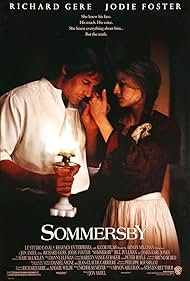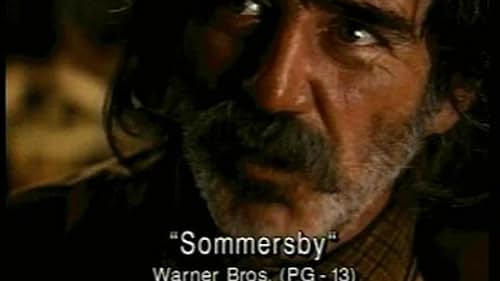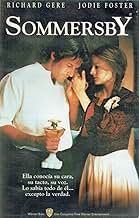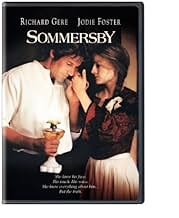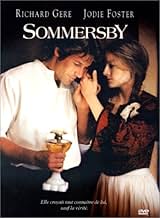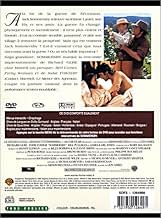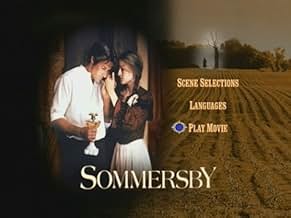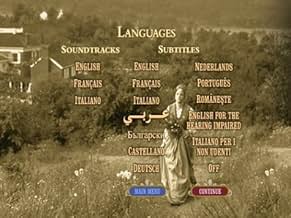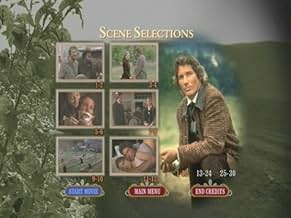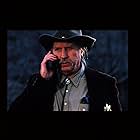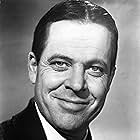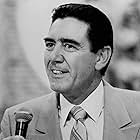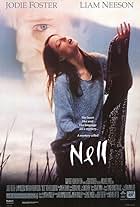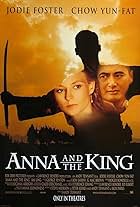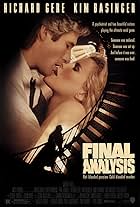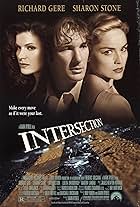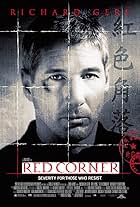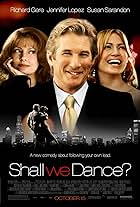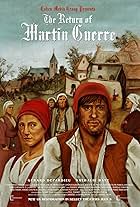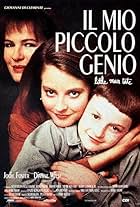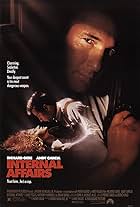Un contadino torna a casa dalla guerra civile, ma sua moglie inizia a sospettare che l'uomo sia un impostore.Un contadino torna a casa dalla guerra civile, ma sua moglie inizia a sospettare che l'uomo sia un impostore.Un contadino torna a casa dalla guerra civile, ma sua moglie inizia a sospettare che l'uomo sia un impostore.
- Premi
- 2 vittorie totali
- Dick Mead
- (as Ronald Lee Ermey)
- Eli
- (as Khaz B.)
- Boy #1
- (as Josh McClerren)
Trama
Lo sapevi?
- QuizThis movie is one of several fictional adaptations of a true, famous legal case of imposture from sixteenth century France. The case involved a man named Martin Guerre who, having disappeared from his Basque village in 1548, suddenly reappeared eight years later. Despite his slightly changed appearance, he convinced his family, wife, and fellow villagers that he was indeed Martin Guerre; he and his wife had two more children and he sued a paternal uncle for the claim to his father's estate. That uncle became suspicious that this returned Martin Guerre was actually an impostor named Arnaud du Tilh, and he contrived a way to have him tried for imposture. This suspicion was ultimately confirmed when the actual Martin Guerre arrived in court during du Tilh's trial. Arnaud du Tilh was convicted and hanged in September 1560.
- BlooperIn 1867 the price for Burley Tobacco was $58 per hundredweight, yet in the movie it was sold for $12.
- Citazioni
Laurel Sommersby: You are not Jack Sommersby, so why do you keep going on pretending that you are?
John Robert 'Jack' Sommersby: How do you know I'm not?
Laurel Sommersby: I know because...
John Robert 'Jack' Sommersby: How do you know?
Laurel Sommersby: I know because...
John Robert 'Jack' Sommersby: How do you know?
Laurel Sommersby: I know because I never loved him the way that I love you.
John Robert 'Jack' Sommersby: Now Laurel tell me, from the bottom of your heart. Am I your husband?
Laurel Sommersby: Yes, you are.
Hollywood's version of the Martin Guerre legend, "Sommersby" boasts a good performance by Richard Gere and a wonderful one by Jodie Foster (as Laurel, Sommersby's wife). Until it allows itself to be deflected by an unconvincing and unnecessary murder trial, the film is a likeable and sensitive study of love and identity.
The story moves through the seasons, from the harshness of winter in the aftermath of war to the solemnity of autumn as Jack Summersby is led away to Nashville. As the opening credits roll, Summersby is literally in the 'dead' of winter, surrounded by images of mortality. He buries a body (the real Jack?) under a pile of rocks, then walks through a cemetery. Children prod the swinging corpse of a hanged man. Hope returns in the spring, as Jack distributes land to the villagers and launches the tobacco-growing project. High summer brings the successful maturing of the crop and with it the pinnacle of Summersby's fortunes.
The murder trial weakens the film irretrievably. It does not sit comfortably with what has preceded it, and just does not work as a courtroom drama. The ground has not been prepared for it, and so the film is obliged to lurch in an unexpected direction. Laurel is called as a surprise witness for the Defence, and Jack is startled as she approaches the stand. Is it really conceivable that Jack's attorney would adopt this strategy without having discussed it with his client?
"Is this a court of law?" asks the prosecutor, and the viewer is inclined to wonder the same thing. No attorney would say, "I believe the prosecution has proved beyond a doubt ..." The lawyer's personal belief has no relevance at all, and it is for the jury to decide if the case has been proved, not the prosecutor. Taking a straw poll of opinions in the public gallery is utter nonsense, as is the presence of a black judge in a Southern court in the 1860's. And judges do not pronounce on guilt or innocence. Juries do that. The word 'sassy' is hardly likely to have been in currency with its modern meaning in Tennessee 130 years ago. That a defendant in a murder trial should fire his attorney then immediately cross-examine his own wife, who is HIS witness, is incredible.
The early part of the film lays emphasis on the human cost of war. Many of the menfolk of Tennessee are maimed or mentally scarred. Sommersby explains the changes that have come over him by hinting that he has undergone some psychological trauma and personality shift.
Laurel works in the field, trying to hoe the dirt while encumbered by her long skirts. This is a metaphor of her life as a Southern woman of the period. She married a man who neither loved nor respected her, then 'lost' him in the war. Now she has the burden of learning to love this man all over again. Just as her skirts hamper her, as a woman she is restricted socially and emotionally.
Tiny Jodie Foster turns in a mighty performance. Her character is by turns grave, coquettish, withdrawn and affectionate - and at all times bestowed with intelligence and dignity. This is a woman who yearns to be loved, but whose painful experiences have taught her to be wary.
Bill Pullman is good as Orin, the capable, trustworthy local man who was courting the 'widow' Laurel and had expectations of marriage until Jack showed up. His feud with Jack is thoughtfully handled. Orin helps cure the tobacco bug problem when a lesser man would have enjoyed Jack's discomfiture.
Ultimately, the story just does not ring true. Would a whole village take a stranger for the man who grew up in its midst? And Jack's final choice (which cannot be revealed here) negates everything for which he has striven. It defies logic.
I più visti
- How long is Sommersby?Powered by Alexa
Dettagli
Botteghino
- Lordo Stati Uniti e Canada
- 50.081.992 USD
- Fine settimana di apertura Stati Uniti e Canada
- 8.104.624 USD
- 7 feb 1993
- Lordo in tutto il mondo
- 140.081.992 USD
- Tempo di esecuzione1 ora 54 minuti
- Colore
- Mix di suoni
- Proporzioni
- 2.39 : 1
Contribuisci a questa pagina

